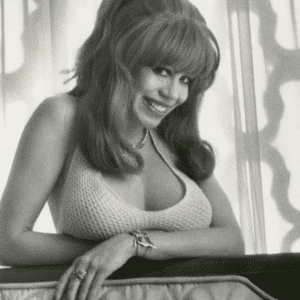Let’s rewind to 1956—a time when the world was first introduced to Elvis Presley not just as the King of Rock ‘n’ Roll, but as a full-fledged movie star. Love Me Tender wasn’t just his film debut; it was a cultural moment that captured the raw magic of a young man destined to become a legend.
While most fans remember the soundtrack and that innocent Southern charm, this movie holds a treasure chest of fascinating facts, behind-the-scenes drama, and bloopers that are just too good to ignore. From the screaming fans overpowering dialogue to zippers in the Wild West, this film was—and still is—an unforgettable piece of Hollywood history.

It Wasn’t Supposed to Be Called Love Me Tender
Originally, this film was titled The Reno Brothers, named after the real-life outlaw gang that inspired the story. But when Elvis recorded a title track that instantly stole hearts, 20th Century Fox made a bold pivot: they renamed the entire movie after the song. Smart move—Love Me Tender quickly became a household phrase, and the title track shot to number one before the movie even premiered.
Video: Elvis Presley – Love Me Tender (1956)
Elvis Played a Historical Figure (Sort Of)
Here’s a lesser-known detail: this was the only movie where Elvis portrayed a character based on a historical figure. Clint Reno was loosely inspired by the Reno Gang, a band of notorious 1860s train robbers. While the movie takes some serious liberties with the facts, the connection still makes it a unique part of Elvis’s filmography.
He Wasn’t Supposed to Be the Star
Believe it or not, Elvis didn’t have top billing. He was cast third after Richard Egan and Debra Paget. The role of Clint Reno had already been passed up by more established actors, and it was initially minor. But when Elvis came on board, studio execs saw an opportunity. They added more scenes, gave him more lines, and yes—threw in a few songs to capitalize on his skyrocketing fame.
From Usher to Icon

Before he was a global icon, Elvis worked as a cinema usher. He’d sit in theaters, watching greats like James Dean and Marlon Brando, dreaming of seeing his name on the big screen. That dream came true faster than anyone expected. After just three days of screen testing, he was in. And not just in—he owned the screen with every second of his debut.
A Star So Bright, Fans Couldn’t Stay Quiet
When the movie premiered in New York City at the Paramount Theater, fans were so overwhelmed they camped out overnight just to get in. Inside the theater, their screams were so loud they drowned out Elvis’s dialogue. Studio staff couldn’t control the chaos—Elvis had already become a phenomenon.
Dedicated, Humble, and Hungry to Learn

Despite the chaos and hype, Elvis showed up to work every day with his lines memorized—his and everyone else’s. According to producer David Weisbart, he was humble, polite, and laser-focused on proving he could act. Though inexperienced, he soaked up every ounce of Hollywood energy and gave his all in each scene.
Added Scenes and Songs
Elvis originally signed on thinking he’d get to act without singing. That changed quickly. Producers added musical performances—including the opening song just five minutes in—to play to his strengths. It was a move Elvis wasn’t thrilled about, but he rolled with it. He still delivered, even if the Civil War-era characters screaming like 1950s fangirls made things hilariously anachronistic.
The Title Track Wasn’t Really “His”
Video: Elvis Presley – Love Me Tender (1956)
Here’s a juicy music trivia gem: Love Me Tender wasn’t even an original Elvis song. It borrowed its melody from an 1860s ballad called “Aura Lee.” The lyrics were adapted by Ken Darby (though officially credited to his wife Vera Matson, likely for publishing reasons). Elvis was listed as a co-writer for royalty purposes, but by his own admission, his only contribution was a single line.
Still, the track was so popular that RCA received over a million pre-orders before it was even released. It became a gold record instantly and stayed on the charts for five weeks. Elvis kept performing it for decades—it was that iconic.
Debra Paget: The Woman Who Captivated Elvis
Let’s talk about Debra Paget, the stunning co-star who left quite an impression on Elvis. They first met on The Milton Berle Show, and Elvis was smitten. He even proposed marriage, according to some reports. Debra, respectful of her conservative upbringing and parents’ wishes, turned him down. But it’s clear that their bond went deeper than just screen chemistry.
In fact, Debra’s influence lingered. It’s said that years later, Priscilla Presley mimicked Debra’s hairstyle from Love Me Tender in hopes of catching Elvis’s eye. If that’s not proof of her lasting impact, what is?
Elvis’s Mother Hated the Ending

Spoiler alert: Clint Reno dies in Debra Paget’s arms. The ending was so upsetting that Elvis’s mother, along with thousands of fans, demanded a change. So, the studio added a final scene—Elvis singing Love Me Tender in silhouette—to soften the blow. But here’s the kicker: by then, Elvis had dyed his hair black, creating a small (but fun) continuity error since he had lighter hair in the rest of the film.
Hilarious Historical Bloopers
It wouldn’t be a classic movie without a few goofs. In Love Me Tender, you’ll spot a car parked in the background during a window scene—oops! And let’s not forget the Confederate soldier zipping up his pants, even though zippers hadn’t been invented yet.
Then there’s the benefit concert scene where Clint plays his guitar… even after taking his hands off it. Ghost strumming? Maybe. Or just a little movie magic gone sideways. Either way, it only adds to the charm.
Conclusion: A Film That Sparked a Legend

Love Me Tender isn’t just a movie—it’s a time capsule. It gave the world a glimpse of Elvis Presley beyond the stage. It showcased his humility, charm, and drive to be more than just a rock star. Sure, it had its flaws and quirks, but that’s part of what makes it so beloved today.
Whether you watch it for the music, the history, or the chance to see Elvis at his most innocent and ambitious, one thing is clear: Love Me Tender marked the beginning of something monumental. And even decades later, we’re still finding new things to love about it.


